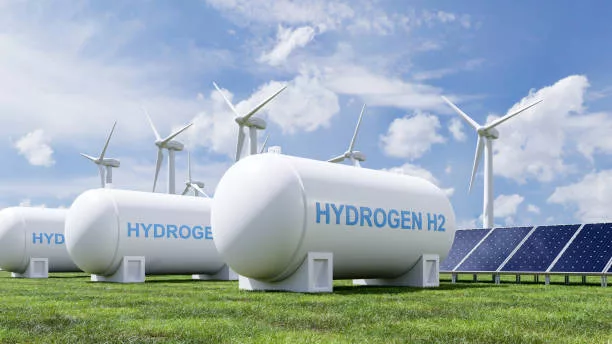In a landmark move under President Joe Biden’s Investing in America agenda, the U.S. Department of Energy (DOE) has released a $750 million funding package to propel 52 innovative clean hydrogen projects forward in 24 states. This decision is set to streamline the advancement of clean hydrogen technologies, significantly lowering production costs and cementing the U.S.’s position as a leader in the global clean hydrogen market.
Catalyzing Hydrogen Innovation and Job Creation
These projects aim to enhance electrolysis techniques while bolstering the manufacturing and recycling of hydrogen systems. Expected outcomes include directly creating over 1,500 new jobs and bolstering U.S. manufacturing to generate 14 gigawatts of fuel cells yearly and 10 gigawatts of electrolyzers. Such growth would support powering a substantial portion of the nation’s medium- and heavy-duty trucks, as well as bolstering clean hydrogen production significantly. This initiative ties directly into Biden’s overarching climate plan, seeking to boost job growth and reinforce the nation’s manufacturing competitiveness.
U.S. Secretary of Energy Jennifer M. Granholm highlighted the administration’s commitment to igniting an “American-led clean hydrogen economy,” a vision shared by Deputy Secretary of Energy David M. Turk, and champions like U.S. Representative Rosa DeLauro and U.S. Representative Debbie Dingell, who recognize the potential economic and environmental benefits of such investments.
Developing a Diverse Clean Hydrogen Economy
Clean hydrogen will play an essential role in lowering emissions across various sectors, including transportation, and industries like steelmaking and fertilizer production. By offering a means for long-duration energy storage, clean hydrogen enhances the viability of a range of clean power sources, aiding energy independence in turn.
The DOE’s Hydrogen and Fuel Cell Technologies Office (HFTO) manages these projects, aligning with two provisions of the Bipartisan Infrastructure Law to facilitate research, development, demonstration, and deployment (RDD&D) of cost-effective clean hydrogen production and manufacturing or recycling methods.
Focus Areas of the Hydrogen Projects
The funding is distributed across several key areas, encapsulating electrolyzer R&D, supply chain development, advanced component technology, fuel cell assembly, and a significant consortium dedicated to hydrogen material recovery and recycling. These areas are crucial in scaling the manufacturing process, managing supply chain risks, and establishing an industry blueprint for recycling that ensures supply security and environmental sustainability.
Economic and Environmental Impact
With a total investment of $1.6 billion (recipient cost-sharing included), the initiative promises the creation of more than 1,500 direct jobs and many more indirectly. By expanding manufacturing capacities, the projections show the potential to power tens of thousands of trucks annually. These developments are set to bolster economic growth, facilitate job creation, and enable the nation to meet its clean energy goals effectively.
The announcement also aligns with the Biden-Harris Administration’s commitment to the Justice40 Initiative, which emphasizes the positive impacts of the clean energy transition on disadvantaged communities, highlighting workforce development and efforts to ensure energy equity.
While the selection for award negotiations marks significant progress, it is important to note that this does not guarantee final funding. The DOE will engage in negotiations with applicants, which could lead to adjustments or cancellations based on those discussions.
